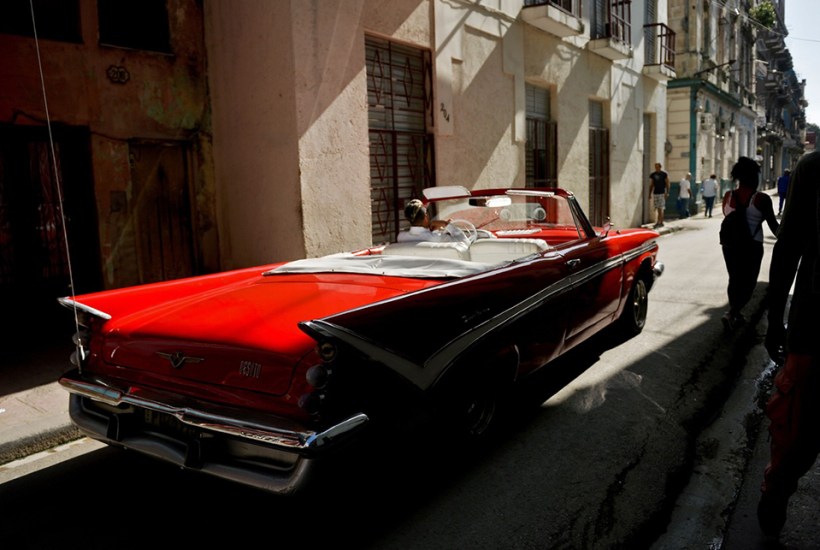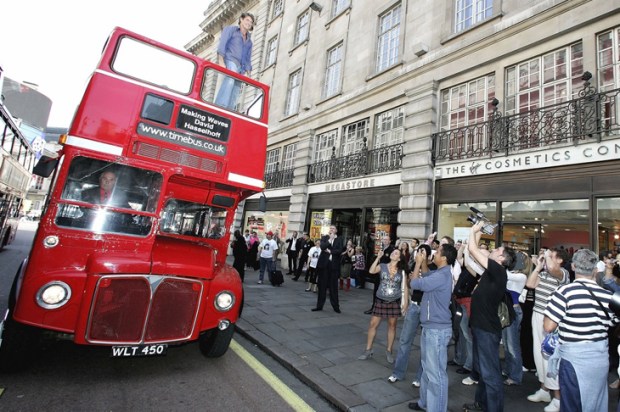A Speccie reader has alerted me to the use of an odd word ‘alum’ to refer to the graduates of his old universe. When he wrote to protest that this was a nonsense word he was told ‘Alum is the non-gender specific term for a singular graduate (rather than specifying gender – alumnus/masculine or alumna/feminine)…’ He was also told that ‘alum’ had been coined in the 19th century. Which rather surprised him, since he hadn’t realised the 19th century was flush was trans-gender issues (and the fear of being transphobic). He asked me to investigate. After some digging, I discovered that ‘alum’ is indeed recorded in the Oxford as American ‘non-standard’ usage from 1877 with the meaning you’d expect: ‘A former student of a school, university, etc.; an alumnus or alumna’. But it had nothing to do with gender. As I read the citations it seems to have begun as an abbreviation rather than as a non-gender-specific term. It’s only around the year 2000 that wokeness took over and unis started referring to their graduates using a word that makes them sound like ‘an astringent mineral salt, typically occurring as colourless or whitish crystals’.
What you call the storage space at the back of a car depends on where you are. In America it is called the ‘trunk’ while in Australia (and Britain) it is the ‘boot’. Both of those words go back a long way. ‘Boot’ started in the days of stagecoaches to name a protruding area, first at the side, then at the back of the coach. This was once used as an extra seat but became a covered luggage area. The source of its name is uncertain, quite possibly because it stuck out from the coach like the toe of a boot. As for ‘trunk’ – many (most?) very early cars had no built-in luggage space, so customers used an old-fashioned trunk (like a steamer or travelling trunk) held to the back of the car with heavy leather straps. But now there is a third word: ‘frunk’. This is now the name for trunk space located in the front of the car under the hood (or bonnet – another changeable word depending on where you are!) So, cars with rear engines can have a ‘frunk’ rather than a ‘trunk’. This is called a ‘portmanteau word’ – based on the old name for a suitcase – because it packs things in together; in this case the ‘fr-’ from;‘front’ and the ‘-unk’ from ‘trunk’. (The expression ‘portmanteau word’ was coined by Lewis Carroll in his Alice books.)
Here’s an odd one to add to your collection of weird words – PUMCINS (pronounced the same as ‘pumpkins’). It was coined by Australian demographer Bernard Salt. That odd collection of upper-case letters stands for: Professional Urban Middle Class In Nice Suburbs. It never caught on, he says, but it still captured a significant social movement, involving a major change in the inner-city suburbs. Those suburbs used to be firmly working class – because working class people needed to live close to the factories and warehouses in which they worked; preferably within walking distance, but at the very least within cheap public transport distance. Over time, the factories and warehouses moved to the outskirts of our cities and the working class moved with them. Which is why our outer suburbs embody classic, working class values. What happened to the inner suburbs? Richer, younger people moved in and ‘gentrified’ them, the people Salt calls PUMCINS. They are often childless singles or couples, and they often don’t own a car (just like the working class who occupied those close-in properties before them – but unlike the working class the carlessness of PUMCINS was a choice, not an economic necessity). The other big change was that most PUMCINS work in the public sector. Their salaries come from taxpayers, not from the marketplace. That tends to make them green, left-leaning socialists – as the recent federal election demonstrated. So, who elected the ‘teals’ to the federal parliament? The PUMCINS – that’s who!
Got something to add? Join the discussion and comment below.
Get 10 issues for just $10
Subscribe to The Spectator Australia today for the next 10 magazine issues, plus full online access, for just $10.
Contact Kel at ozwords.com.au
You might disagree with half of it, but you’ll enjoy reading all of it. Try your first month for free, then just $2 a week for the remainder of your first year.














Comments
Don't miss out
Join the conversation with other Spectator Australia readers. Subscribe to leave a comment.
SUBSCRIBEAlready a subscriber? Log in